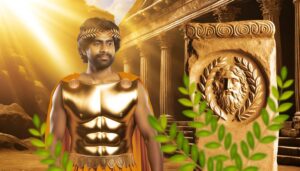Meaning of the Name Rumi
The name "Rumi" traces back to the 13th-century Persian poet and mystic Jalal ad-Din Muhammad Rumi. It originates from the Arabic term for Byzantine territories, 'Rūm,' with a Persian suffix '-i' indicating origin.
Rumi signifies a rich cultural and intellectual legacy, reflecting the poet's profound contributions to Sufism, literature, and spiritual philosophy. His works, such as the *Masnavi*, integrate themes of divine love, mystical union, and inner transformation, impacting both Eastern and Western traditions.
The continued relevance of Rumi's legacy in modern culture underscores its timeless appeal and depth. Discover more layers of this influential name.

Key Takeaways
- Rumi is derived from the Persian poet Jalal ad-Din Muhammad Rumi.
- The name means 'from Rome' or the Byzantine territories.
- Symbolizes cultural and intellectual heritage, rooted in Persian literature and Sufi mysticism.
- Represents themes of divine love, mystical union, and inner transformation.
- Continues to influence modern literature, spirituality, and popular culture.
Origin of the Name
The name Rumi originates from the Persian poet and mystic Jalal ad-Din Muhammad Rumi, whose influence extends across various cultures and disciplines.
The etymology traces back to the term 'Rumi,' which means 'from Rome' or the Anatolian lands once under the Byzantine Empire. This designation distinguished Rumi's geographical roots, as he spent much of his life in the region now known as Turkey.
The moniker epitomizes a blend of cultural and intellectual heritage, encapsulating the poet's diverse philosophical and spiritual contributions. Rumi's name has come to symbolize not just his literary genius, but also his profound impact on Sufism, literature, and intercultural dialogue, making it a resonant identifier in historical and contemporary contexts.
Historical Context
The name Rumi holds profound cultural significance, originating from the 13th-century Persian poet and Islamic scholar Jalāl ad-Dīn Muhammad Rūmī.
Over the centuries, Rumi's influence has evolved, permeating various cultural and literary landscapes beyond its initial geographic and religious boundaries.
This historical context underscores the enduring legacy of Rumi's name and its multifaceted impact on both Eastern and Western traditions.
Rumi's Cultural Significance
Rooted in the rich tapestry of Persian literature and Sufi mysticism, Rumi's cultural significance extends far beyond his poetry, influencing diverse aspects of spiritual and intellectual thought across centuries.
His works, particularly the *Masnavi*, are considered masterpieces that seamlessly integrate profound spiritual insights with poetic elegance. Rumi's teachings emphasize the unity of being and the transformative power of love, resonating with followers worldwide.
His impact is evident in the spread of Sufism, shaping the development of Islamic mysticism and philosophy. Moreover, his influence transcends religious boundaries, inspiring a global audience to explore themes of inner peace and universal connection.
Rumi remains a pivotal figure in both historical and contemporary contexts.
Evolution Through Centuries
Rumi's literary and philosophical contributions have undergone significant reinterpretations and adaptations throughout the centuries, reflecting the evolving cultural and intellectual landscapes of various eras.
Initially celebrated within the Islamic world for his mystical poetry, Rumi's works resonated with Sufi traditions, emphasizing spiritual union and divine love.
By the 19th century, his influence extended into Western literary circles, where Romantic poets, captivated by his themes of transcendence and unity, further popularized his oeuvre.
In the modern era, Rumi's verses have found renewed relevance, transcending religious and cultural boundaries to appeal to diverse audiences seeking spiritual guidance.
This continuous evolution underscores Rumi's enduring legacy and the universal appeal of his profound insights into the human condition.
Linguistic Roots
Delving into the linguistic roots of the name 'Rumi' reveals its origins in Persian and Arabic languages, where it carries significant cultural and historical connotations.
The name 'Rumi' is derived from the Arabic term 'Rūm,' which historically referred to the territories of the Byzantine Empire, particularly Anatolia. In Persian, the suffix '-i' denotes origin or affiliation, hence 'Rumi' translates to 'from Rome,' signifying someone from the region once under Roman influence.
This nomenclature was famously adopted by the 13th-century Persian poet Jalāl ad-Dīn Muhammad Balkhī, better known as Rumi, whose works have profoundly influenced Islamic culture. Understanding these linguistic roots provides essential context for appreciating the depth and resonance of the name 'Rumi' across cultures.
Cultural Significance
The cultural significance of the name Rumi extends far beyond its linguistic origins, encompassing historical and literary impact as well as modern global influence.
Historically, Rumi's poetry and philosophical works have shaped Persian literature and Sufi mysticism, leaving a lasting legacy in both Eastern and Western thought.
In contemporary times, Rumi's teachings continue to resonate globally, inspiring diverse audiences and fostering cross-cultural connections.
Historical and Literary Impact
Throughout centuries, the name Rumi has come to symbolize a profound confluence of spiritual insight and poetic brilliance, deeply influencing various cultural and literary traditions. His works have transcended linguistic and geographical barriers, embedding themselves in the cultural fabric of many societies. Rumi's poetry, characterized by its mystic depth and universal themes, has been a cornerstone in Persian literature and Sufi mysticism. His impact extends beyond literature, touching art, music, and philosophy. The following table outlines key areas influenced by Rumi:
| Domain | Influence |
|---|---|
| Literature | Enrichment of Persian poetry and introduction of Sufi themes |
| Philosophy | Integration of mystic thought into broader philosophical discourses |
| Art | Inspiration for visual arts, calligraphy, and architecture |
| Music | Incorporation of Rumi's poetry into musical compositions and performances |
Rumi's profound legacy continues to resonate, illustrating the enduring power of his words.
Modern Global Influence
Rumi's poetry has found a renewed resonance in contemporary global culture, manifesting in diverse forms of artistic and intellectual expression. His verses have transcended linguistic and geographical boundaries, inspiring modern literature, music, and visual arts.
In the West, Rumi's themes of love, unity, and spiritual introspection have become integral to self-help literature and mindfulness practices. Musicians draw from his works to craft lyrics that explore profound emotional landscapes. Additionally, his influence is evident in contemporary dance and visual arts, where his mystical imagery is often depicted.
Rumi's enduring relevance lies in his ability to address universal human experiences, fostering cultural dialogues that bridge Eastern and Western philosophical traditions. This global embrace underscores his timeless significance.
Rumi in Literature
A profound influence on both Eastern and Western literary traditions, Rumi's poetry and prose have transcended cultural and temporal boundaries. His works explore universal themes such as love, spirituality, and the human condition.
The following points highlight his literary significance:
- Interconnectedness: Rumi's exploration of the unity of all beings has resonated across cultures, fostering a sense of global interconnectedness.
- Symbolism: His use of rich, evocative symbolism allows readers to delve deeply into intricate philosophical and spiritual ideas.
- Narrative Style: Rumi's engaging storytelling combines mystical insight with practical wisdom, making his works accessible yet profound.
- Linguistic Beauty: The lyrical quality of Rumi's writings, characterized by fluidity and rhythm, has made his poetry timeless and universally appealing.
Analyzing these aspects reveals Rumi's enduring literary legacy.
Global Popularity
Building on the profound literary significance of Rumi's works, his poetry and prose have achieved remarkable global popularity, enchanting audiences from diverse cultural backgrounds. His themes of love, spirituality, and human connection resonate universally, transcending linguistic and cultural barriers.
Translations of his work in numerous languages have facilitated this widespread reach, making him one of the best-selling poets in the United States. Social media and digital platforms have further amplified his presence, with quotes and excerpts widely shared, reflecting a contemporary relevance.
Additionally, his influence extends into music, visual arts, and therapy, showcasing the multifaceted impact of his wisdom. Rumi's global appeal underscores a timeless resonance, affirming the enduring power of his profound insights.
Symbolism and Meanings
The intricate symbolism and profound meanings embedded in Rumi's poetry offer deep insights into the human experience, illuminating themes of love, mysticism, and self-discovery.
Rumi's verses, rich in metaphor and allegory, explore the following:
- Love as a Divine Force: Rumi often portrays love as a transformative power, leading individuals towards spiritual enlightenment.
- Mystical Union: His work frequently symbolizes the soul's journey towards unity with the divine, emphasizing a deep connection with the transcendent.
- Inner Transformation: The poet explores themes of personal growth and self-awareness, advocating for introspection and inner change.
- Nature as a Mirror: Rumi uses natural elements to reflect spiritual truths, illustrating how the external world mirrors internal experiences.
These symbolic themes encapsulate Rumi's enduring wisdom.
Modern Usage
Today, Rumi's poetic legacy continues to resonate, finding new relevance in contemporary literature, spiritual practices, and popular culture. His verses, imbued with themes of love, unity, and transcendence, are frequently cited in modern self-help books and spiritual guides, reflecting an enduring quest for inner peace and universal connection.
In literature, Rumi's influence is evident in works that explore mysticism and human experience, often serving as a bridge between Eastern and Western thought. Additionally, his name appears in various artistic expressions, from music to visual arts, symbolizing an embrace of spiritual and emotional depth.
This contemporary engagement with Rumi underscores a timeless appeal, bridging historical wisdom with present-day introspection and cultural dialogue.
Famous Namesakes
Numerous notable individuals and entities have adopted the name Rumi, reflecting its widespread cultural and intellectual significance. This name, rooted in historical and literary prestige, has been embraced in various contexts, underscoring its multifaceted appeal.
- Jalaluddin Rumi: The 13th-century Persian poet and Sufi mystic, whose profound writings on love and spirituality have transcended centuries.
- Rumi (Child of Beyoncé and Jay-Z): The daughter of globally renowned musicians Beyoncé and Jay-Z, symbolizing modern cultural influence.
- Rumi Neely: A prominent fashion blogger and entrepreneur, known for her site 'Fashion Toast' and her influence in the digital fashion sphere.
- Rumi (Manga Character): A character in various manga series, illustrating the name's penetration into popular culture and entertainment.
Conclusion
The name Rumi juxtaposes historical depth with modern relevance. Originating from Persian and Arabic roots, it embodies rich cultural and linguistic heritage.
Historically significant, it resonates through literature, particularly linked to the renowned poet Jalal ad-Din Rumi. Its global popularity reflects a synthesis of tradition and contemporary appeal.
Symbolically, the name signifies wisdom and mysticism. In modern contexts, Rumi continues to inspire, bridging ancient legacies with present-day identities, maintaining a timeless and universal significance.






